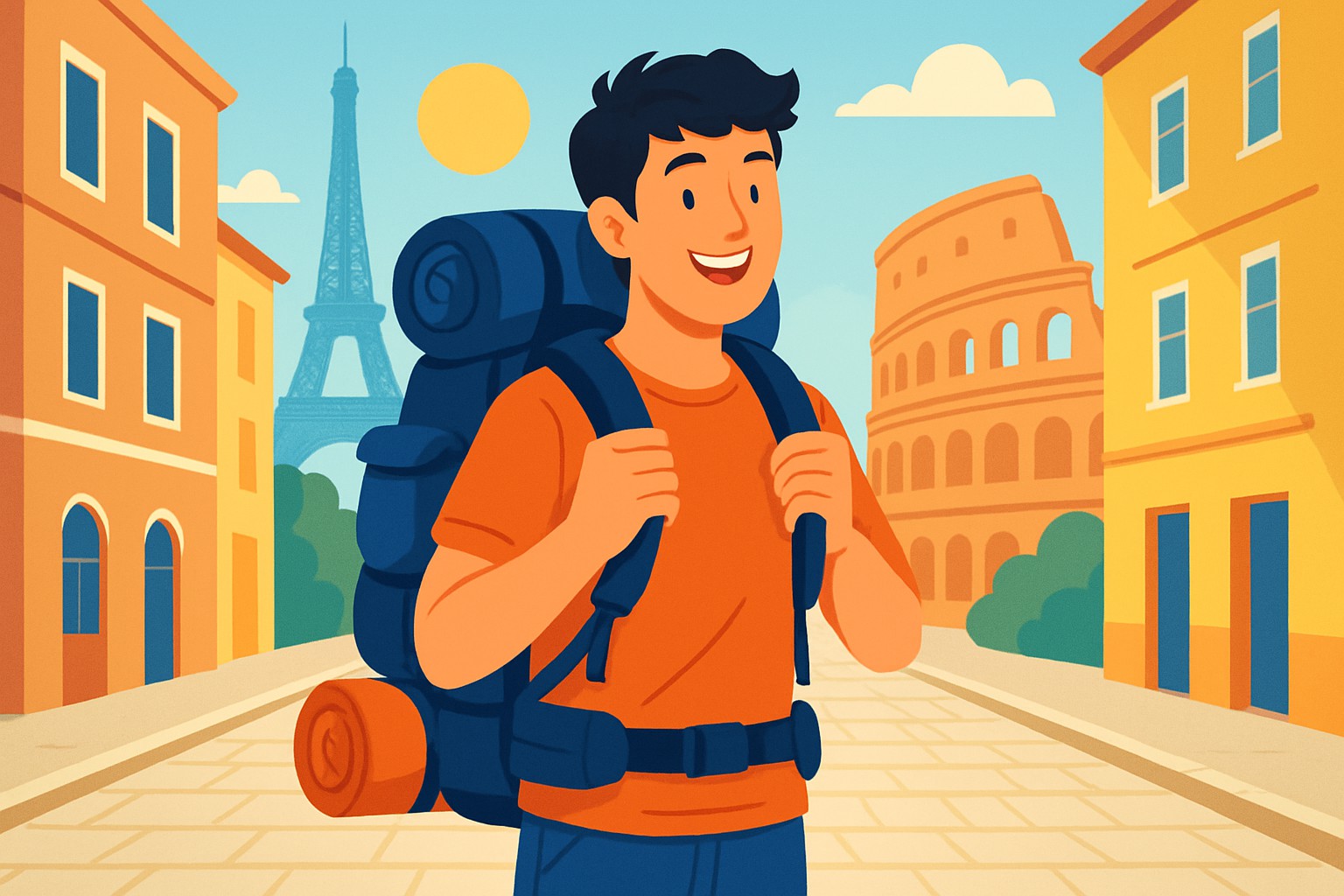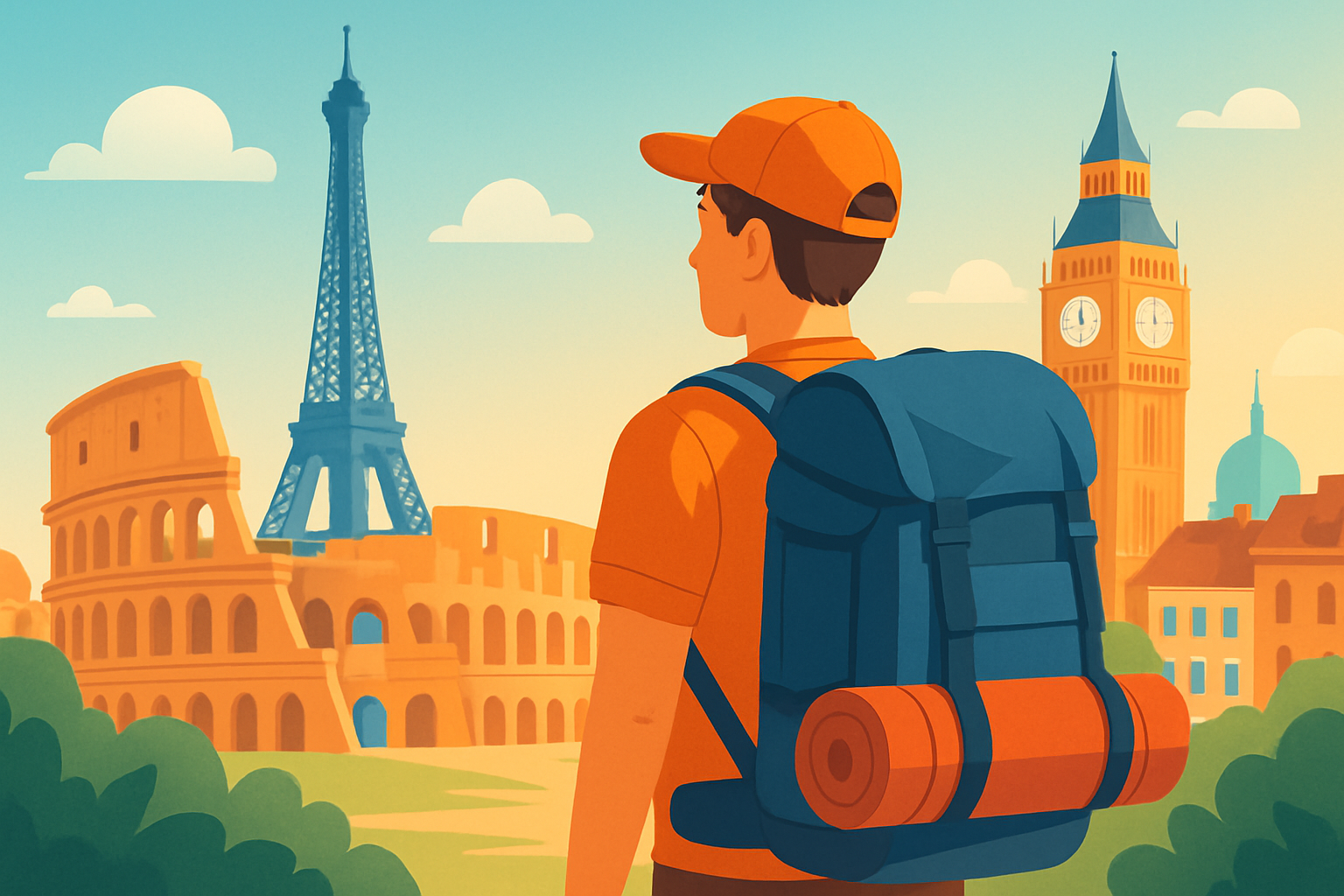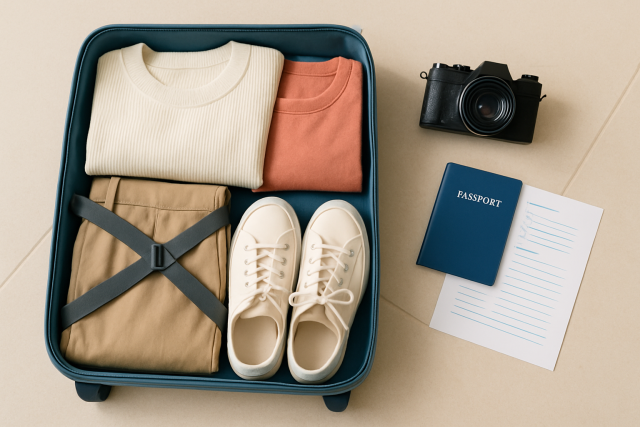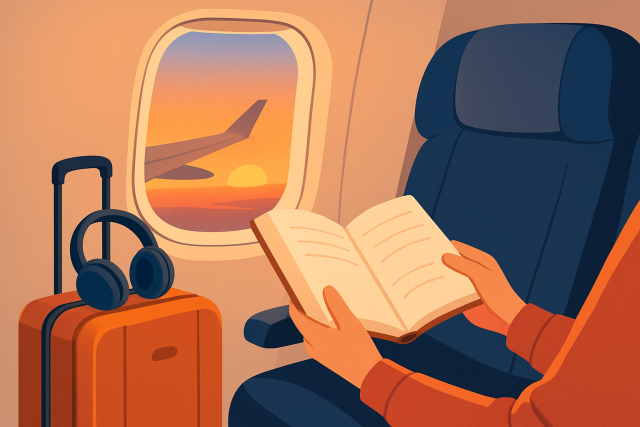Backpacking Europe Essentials You Actually Need

Backpacking through Europe for the first time can definitely feel a bit overwhelming at first, but having the right backpacking Europe essentials really goes a long way in easing the chaos.
Essential Nuggets for Those Just Getting Their Feet Wet with Backpacking
Backpacking in Europe is usually all about traveling light and flying solo. You often bounce between several cities or countries with just one backpack holding all your essentials. Instead of focusing on luxury, backpacking leans on budgeting smartly, staying flexible, and truly soaking up the local culture.
- Backpacking usually means lugging all your essentials in a single pack perfect for those who like to keep things budget-friendly and go with the flow.
- Europe is known for having a great setup for transport and lodging options that fit the backpacker lifestyle like cozy hostels and wallet-friendly trains.
- Beginners often dip their toes into the travel world by crashing in hostels or couchsurfing and hopping on Eurail passes to explore by train.
- A hostel is an affordable shared spot where you save some cash and swap stories with fellow travelers.
- Couchsurfing lets you bunk with locals free of charge and gives you a genuine peek into the culture, almost like visiting a friend rather than just a place.
Picking the Right Backpack Your Secret Weapon for Travel Success
Your backpack is the unsung hero of any trip, so choosing the right size and style can seriously make or break your experience. If you’re just starting out, a 40 to 60 liter pack with adjustable straps and pockets tends to be a safe bet.
- Aim for a backpack between 40 and 60 liters to have enough room without hauling extras you probably won’t need.
- Travel backpacks tend to be lighter and have compartments you can easily access on the go. Hiking packs focus on rugged durability and spreading the weight so you don’t feel like a pack mule.
- Make sure your backpack has padded shoulder straps and an adjustable hip belt. These comforts make a big difference when carrying your gear for hours.
- Look for handy features like a rain cover, lockable zippers and multiple compartments because they’ll save you from turning into a frantic rummager mid-trip.
- Avoid backpacks that are too large since they attract unnecessary stuff that weighs you down.
- If you can, try loading your backpack fully and wear it around before you hit the road. It’s the best way to find out if you’re in for a comfy journey or a sore-shouldered slog.
Backpacking Europe Essentials The Bare Necessities You’ll Want to Toss in Your Bag
Packing wisely really takes the edge off your trip and spares you the hassle of hauling unnecessary weight. Usually the essentials fall into a few clear categories: clothing suited for European weather, must-have gadgets, travel documents, toiletries, and some handy miscellaneous items.
Pack clothing that’s versatile enough to handle whatever comes your way. Think layers, quick-dry shirts, a cozy jacket and shoes that won’t have your feet begging for mercy after a day of walking.
Don’t forget travel-sized toiletries that follow airline rules. They save space and prevent your bag from becoming a black hole.
Always keep your important documents within arm’s reach. This includes your passport, visa if needed, travel insurance and those reservation confirmations that somehow always disappear when you need them most.
Bring along your essential electronics like your smartphone, charger, adapter and headphones because music and a charged phone are lifelines.
Carry some local cash tucked away safely in a travel wallet or money belt. It’s a small thing that can totally save you in a pinch.
Remember the little but mighty essentials such as a reusable water bottle, a compact first aid kit and a travel towel that’s ready to soak up whatever adventure throws at you.
Packing cubes or compression bags work wonders to keep your gear neat and tidy. They make frantic hotel room unpacking a breeze.
Don’t overlook basic meds and sunscreen because it’s the simple stuff that keeps you comfortable and sunburn-free when you’re outdoors.
A lightweight daypack is your best friend for daily excursions. It carries just what you need without turning into a pack mule.
Lastly, a compact power bank is a real lifesaver. It keeps your devices juiced up no matter where the day takes you.
| Category | Item | Purpose | Packing Tips |
|---|---|---|---|
| Clothing | Layered shirts & pants | To easily adapt to Europe’s ever-changing weather | Go for lightweight, moisture-wicking fabrics that behave well all day long |
| Clothing | Comfortable shoes | Perfect for those long city strolls and dodging uneven cobblestones | Bring shoes you’ve already worn in—nothing worse than blisters on day one |
| Gadgets | Smartphone & charger | Your trusty sidekick for navigation, staying connected, and a bit of downtime fun | Don’t forget universal travel adapters; those European plugs can be sneaky |
| Documents | Passport & insurance | Essential for ID checks and peace of mind during your travels | Keep both digital and physical copies safe and handy—you never know |
| Toiletries | Travel-sized shampoo | To keep you feeling fresh from start to finish | Just remember the airline’s liquid limits so you’re not held up at security |
| Miscellaneous | Reusable water bottle | Stay hydrated while you’re out soaking up the sights | Collapsible bottles are a lifesaver when space is tight |
| Miscellaneous | Packing cubes | Keep your clothes and gear neat as a pin | They help you compress everything and squeeze in more—packing wizardry! |
| Safety | Money belt & RFID pouch | Shields your cash and cards from unwanted attention | Tuck them away under your clothes where prying eyes can’t reach |
| Health | Basic medications | For tackling pesky minor ailments or allergies on the go | Pack according to your own health needs; better safe than sorry |
| Comfort | Travel towel | Quickly dries you off after showers or those little spills | Microfibre towels are small but mighty—compact and super absorbent |
Packing efficiently usually means rolling your clothes instead of folding them and tossing stuff into packing cubes to keep things neat. Stash frequently used items near the top so they’re easy to grab without rummaging.
Useful Advice for People Backpacking for the First Time (Because Let’s Face It, We’ve All Been There)
- Always give your backpack a quick once-over to check its weight before you hit the road. You want it comfy and not a backbreaker.
- Master the art of layering clothes so you can easily adjust when European weather keeps you guessing.
- Plan for those inevitable laundry pit stops by packing quick-dry clothes and scouting out local laundromats since it really makes a difference.
- Keep your valuables snug and out of sight with small pouches or money belts while you are on the move because it’s better to be safe than sorry.
- Use packing cubes since they are like magic little organizers that save you from digging through your bag like a treasure hunter.
- Strike a smart balance between comfort and traveling light. Don’t go overboard packing but make sure you have all the essentials to keep you feeling good and ready for anything.
Keep in mind that your packing list will naturally evolve over time. It’s perfectly normal to fine-tune what you bring along after your first trip, once you get a real feel for what matches your style and what actually works for your destinations.
Common Issues Beginners Face and How to Tackle Them Like a Pro
First-time backpackers often find themselves stressing over packing too much or forgetting essential gear. They also worry about getting lost, staying safe and grappling with spotty internet. These worries are normal and manageable once you have some planning and a flexible attitude to roll with the punches.
- You can usually dodge the overpacking bullet by embracing a minimalist wardrobe with versatile pieces that play well together.
- Money worries tend to ease up when you plan ahead and choose wallet-friendly spots like hostels or whip up a few meals yourself.
- Staying safe often boils down to trusting your gut and keeping handy copies of important documents. Avoid dodgy areas after dark.
- Stay connected without breaking the bank by grabbing a local SIM card or renting a portable Wi-Fi device.
- Language barriers feel less intimidating if you rely on translation apps and learn a handful of key phrases before you hit the road.
"Packing takes a bit of trial and error. Start with the essentials, then tweak your list after every trip to better fit your own travel quirks and what you actually find yourself needing."
Handy Tools and Resources You’ll Actually Want to Use for Packing and Planning
If you are backpacking for the first time, sites like Lonely Planet and Rick Steves usually come through with great beginner guides and handy tips on destinations that can save you a lot of head-scratching moments. Apps like Google Maps and Rome2rio make navigating unfamiliar places easier. Hostelworld helps with booking a roof over your head—they're lifesavers.

A beginner backpacker ready to start their European journey with essentials packed and confidence.
Final Thoughts on Packing Light and Traveling Smart
Packing light and traveling smart might sound like a no-brainer, but believe me, it’s a bit of an art form. It’s not just about squeezing your life into a carry-on; it’s about feeling free, prepared, and maybe even a little adventurous along the way. A well-packed bag lets you breeze through airports, dodge extra fees, and honestly, just enjoy the journey without the extra baggage—literally and figuratively. So take it from someone who’s learned the hard way, a little planning goes a long way and travel gets a whole lot sweeter when you’re traveling light.
Backpacking through Europe is an adventure like no other and the secret to making it enjoyable often lies in careful planning and knowing your backpacking Europe essentials. Think versatile clothing and those handy gadgets you can’t live without. Of course, travel documents should stay secure but easily accessible. Try to keep your bag light and tidy—it makes a world of difference. There’s going to be a learning curve no doubt, but don’t let the quest for perfect planning freeze you in your tracks.





